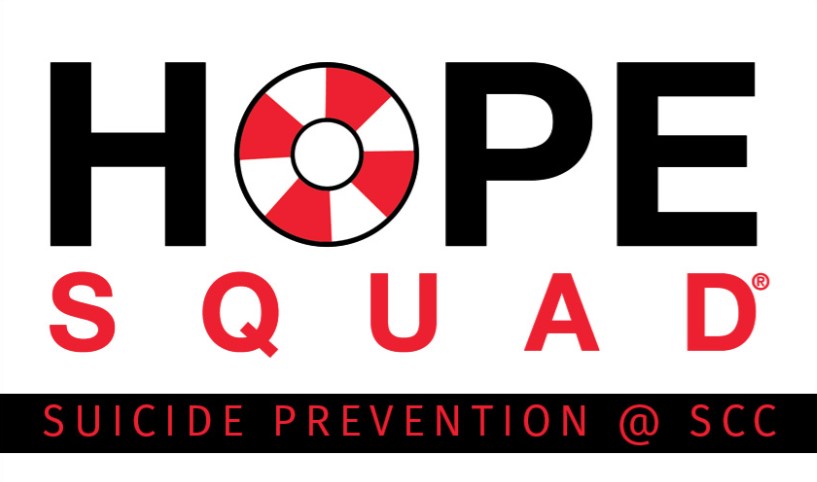Suicide Prevention at SCC
Are you
- Concerned about others?
- A good listener and easy to talk with?
- Someone to turn to if a friend is needed?
Hope Squad’s Mission: To reduce suicide through education, training and peer intervention.
Hope Squad Members…
are the peer leader support teams on campus. Students at risk for suicidal behavior are more likely to confide in a peer than a professional. The Hope Squad acts as the eyes and ears of on campus, providing a link between struggling students and professional help. Hope Squad members are empowered to seek help, and save a life through education.
As a Hope Squad Member, you will
- Attend QPR Suicide Prevention training
- Increase suicide awareness (i.e., knowledge of warning signs, not keeping deadly secrets, and how to get help)
- Promote a caring SCC environment
